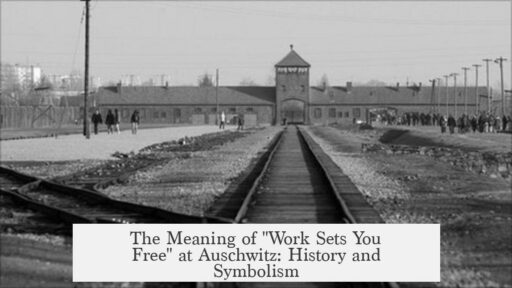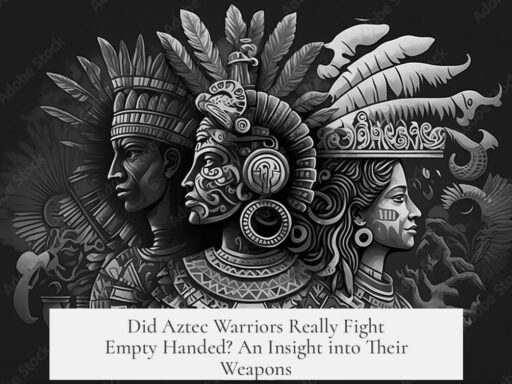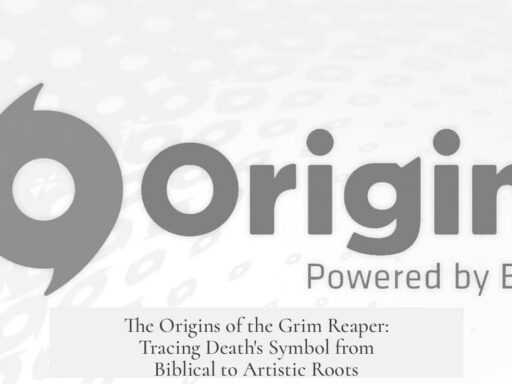The Nazis put the phrase “Arbeit macht frei,” meaning “Work sets you free,” on the entrance to Auschwitz as a cynical form of psychological manipulation. This slogan aimed to deceive prisoners into believing that hard work could lead to freedom. In reality, Auschwitz was a site of systematic extermination and forced labor, where no such freedom was possible.
The slogan “Arbeit macht frei” originally appeared at other Nazi concentration camps before it was placed at Auschwitz. Its use was part of a broader Nazi propaganda effort designed to hide the brutal and lethal conditions within the camps. By presenting work as a path to liberation, the Nazis created false hope. This hope served to control the behavior of prisoners, encouraging compliance and effort despite the camp’s deadly reality.
This phrase thus functioned as psychological control. Prisoners who entered Auschwitz saw the sign and were misled into thinking that their fate might improve if they worked hard. In truth, Auschwitz combined forced labor with mass murder. The phrase was cruelly ironic, reflecting the camp’s function as a place of suffering rather than escape.
Scholars and historians have analyzed this slogan extensively. It stands as a symbol of the extreme deceit and cruelty of the Nazi concentration camp system. The phrase’s presence at Auschwitz signals the deliberate use of propaganda to mask genocide.
“Arbeit macht frei” is now widely recognized as emblematic of Nazi inhumanity. It highlights how language was weaponized to manipulate and destroy.
The slogan’s enduring notoriety stems from its role in the broader context of Nazi oppression. It framed the camp entrance with a message that promised freedom through work—an illusion meant to suppress resistance and maintain order in a place designed for extermination.
- “Arbeit macht frei” translates to “Work sets you free.”
- The phrase served as false hope to prisoners, masking Auschwitz’s true nature.
- It was a tool of psychological manipulation and Nazi propaganda.
- Auschwitz was a site of systematic murder, not liberation through labor.
- The slogan symbolizes Nazi cruelty and deceit.
Why did the Nazis put “Work sets you free” on the entrance to Auschwitz?
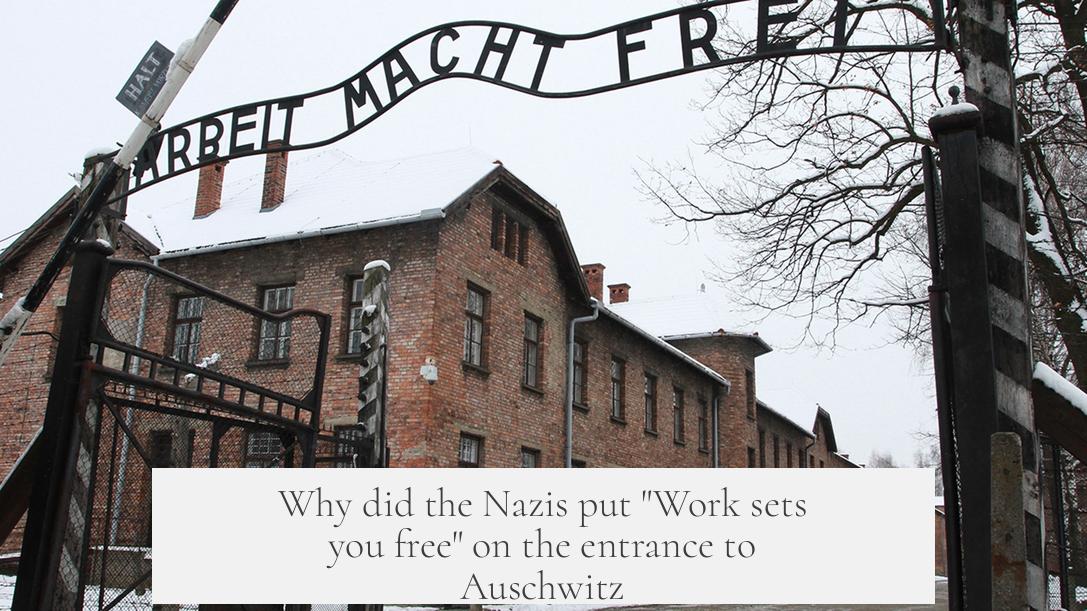
The Nazis placed the phrase Arbeit macht frei, meaning “Work sets you free,” above the entrance to Auschwitz and other concentration camps as a cruel form of psychological manipulation designed to deceive prisoners into believing that complying with forced labor might earn them freedom. In reality, it was a cynical lie masking the brutal truth that Auschwitz was a place of systematic extermination with no hope of escape through hard work.
Now, let’s unpack this tangled, grim slogan and see why it’s still talked about so often — and why it haunts history.
First off, the phrase itself wasn’t unique to Auschwitz. The phrase “Arbeit macht frei” adorned entrances to multiple Nazi concentration camps, including Dachau and Sachsenhausen. Its presence at Auschwitz became infamous, given that Auschwitz was the largest and deadliest camp within the Nazi system.
The slogan literally translates to “Work makes you free” or “Work sets you free.” On the surface, this may sound like a motivational phrase, something you’d find on an inspirational poster in a company hoping to boost productivity—except, in the Auschwitz context, it was anything but motivating or truthful. Instead, it was a tool of horror masked in deceit.
Why use such a slogan? The Nazis implemented the phrase as part of their propaganda strategy. It’s important to grasp the power of words in controlling and manipulating people — especially when those people are trapped in a nightmare they cannot escape. “Work sets you free” was intended to give prisoners a false glimmer of hope, an illusion that if they labored hard enough, they might secure their freedom.
Imagine being a prisoner arriving at Auschwitz for the first time, shattered and terrified. You pass under that iron gate, see the phrase shining above it, and — just maybe — you hold onto a bitter, challenging hope. It’s a thorny psychological tactic. The Nazis counted on this false promise to regulate prisoners’ behavior, compelling compliance and sustained labor even in the face of starvation, torture, and death.
In reality, few prisoners ever escaped. Auschwitz was primarily a death camp. Forced labor was brutal and unforgiving. For most, there was no path to freedom, only a slow march toward death. The phrase was a dark joke by the camp’s architects, a chilling symbol of the Nazi regime’s cruelty.
The Historical Context Behind the Phrase
The origin of Arbeit macht frei can be traced to earlier uses in Germany, notably in the 19th century as a call to work ethic. But the Nazis repurposed it with horrific intent. It first appeared on the gate of Dachau, one of the first Nazi concentration camps. Over time, it became a recurring mantra cynically emblazoned over the gates of multiple camps.
In Auschwitz, the phrase was positioned to psychologically prime newcomers. The Nazis wanted to project an image—deceptive and cruel—that imprisonment was a form of rehabilitation or punishment that could be overcome by work. This was outright manipulation, crafted to maintain order in camps where brutality reigned.
Historians and scholars have since dissected the slogan, often highlighting it as a symbol of Nazi deception and moral bankruptcy. The phrase itself embodies the barbarism behind the polished façade of propaganda. It reminds us how language can be twisted to hide horrific truths.
Deeper Insight and Symbolism
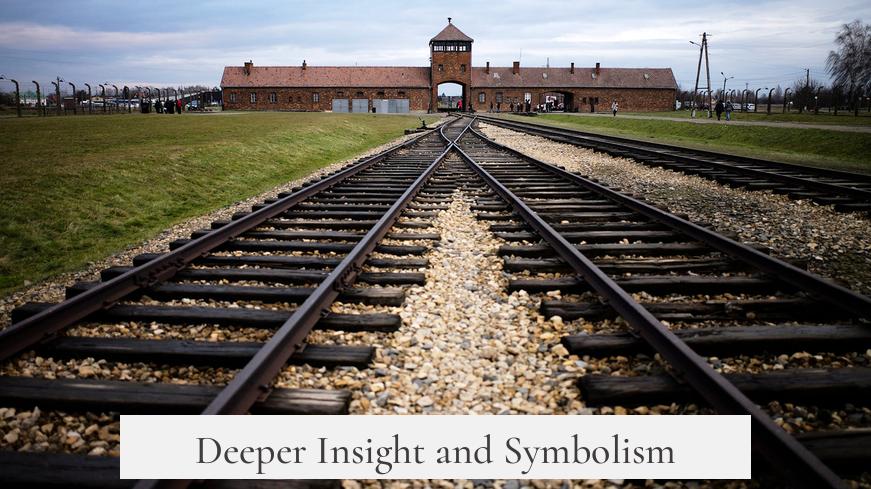
This phrase has become a powerful marker in discussions about Holocaust history. It’s mentioned often in the study of how the Nazis dehumanized millions through layers of lies and false promises. Its use reflects the complex strategy of control through hope — even if that hope was a deadly lie.
For those interested in a detailed, scholarly treatment of its meaning, there are resources like the extensive answer by Reddit’s /u/commiespaceinvader in r/AskHistorians, which thoroughly examines the phrase’s historical background, psychological purpose, and sad irony.
Here’s a sobering question to think about: How can a simple phrase capture the essence of so much cruelty? The answer lies in its purpose—controlling minds, creating obedience, and masking the true horrors of Auschwitz and the Nazi camp system attached to it.
What This Means Today
The presence of “Work sets you free” on Auschwitz’s gate reminds us that propaganda can have deadly consequences. It teaches us to look beyond words and question their context, especially when power dynamics are involved. Phrases alone don’t free people—action, justice, and remembrance do.
So next time you see that phrase referenced, remember: it wasn’t a slogan of liberation. It was a tool of oppression, cruelty, and lies, carefully crafted to shroud horror with a bitter mask of false hope.
In exploring this topic, it’s clear that words can wound as deeply as weapons. The Nazis knew this and exploited it with devastating effect. Our understanding of history deepens when we uncover the truth behind phrases like these—not just what was said, but why and how it was meant to hurt.
